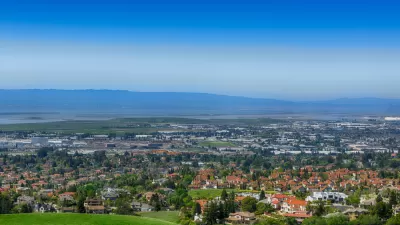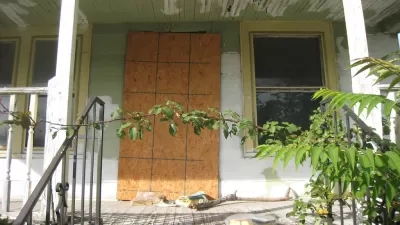The recovery of Las Vegas, hit hard by the Great Recession, resembles the recovery of the rest of the country—uneven and innovative.
The Economist reports on the economic recovery, as exemplified by the city of Las Vegas. To introduce the subject, the article first describes the "Ascaya" project, carved into a mountain ten miles to the southeast of the Las Vegas Strip:
"For five years the project appeared doomed to become a monument, carved into rock, to an unsustainable housing boom. Now however, construction has restarted—not just on this site, but on several hundred others at the city’s edge. House prices, like employment, visitor numbers and gambling revenues, are creeping up again. Las Vegas’s economy is recovering—fitfully, but in a way that is more sustainable than its previous boom was. The city, unique though it is, is an exaggerated microcosm of America at large."
The article goes on to detail the city's fall during the recession, before diving into the city's new economy. Examples of the city's newly diversified economy include the arrival of the company Switch, "a secretive firm which manages data for thousands of America’s biggest companies" that also has nothing at all to do with the gaming industry or the development of sprawling master planned communities. The article also notes changes in the gaming industry, which is building new products with less focus on gambling to attract younger crowds and more people who don't like to gamble.
Finally, the article notes that the city's recovery, like the country's recovery, has first benefitted the wealthy. The article returns to Ascaya to prove that point: "The new houses being built, such as those at Ascaya, are mostly targeted at the wealthy; many of the poor still remain underwater."
FULL STORY: Viva again

Planetizen Federal Action Tracker
A weekly monitor of how Trump’s orders and actions are impacting planners and planning in America.

Maui's Vacation Rental Debate Turns Ugly
Verbal attacks, misinformation campaigns and fistfights plague a high-stakes debate to convert thousands of vacation rentals into long-term housing.

San Francisco Suspends Traffic Calming Amidst Record Deaths
Citing “a challenging fiscal landscape,” the city will cease the program on the heels of 42 traffic deaths, including 24 pedestrians.

Defunct Pittsburgh Power Plant to Become Residential Tower
A decommissioned steam heat plant will be redeveloped into almost 100 affordable housing units.

Trump Prompts Restructuring of Transportation Research Board in “Unprecedented Overreach”
The TRB has eliminated more than half of its committees including those focused on climate, equity, and cities.

Amtrak Rolls Out New Orleans to Alabama “Mardi Gras” Train
The new service will operate morning and evening departures between Mobile and New Orleans.
Urban Design for Planners 1: Software Tools
This six-course series explores essential urban design concepts using open source software and equips planners with the tools they need to participate fully in the urban design process.
Planning for Universal Design
Learn the tools for implementing Universal Design in planning regulations.
Heyer Gruel & Associates PA
JM Goldson LLC
Custer County Colorado
City of Camden Redevelopment Agency
City of Astoria
Transportation Research & Education Center (TREC) at Portland State University
Jefferson Parish Government
Camden Redevelopment Agency
City of Claremont





























